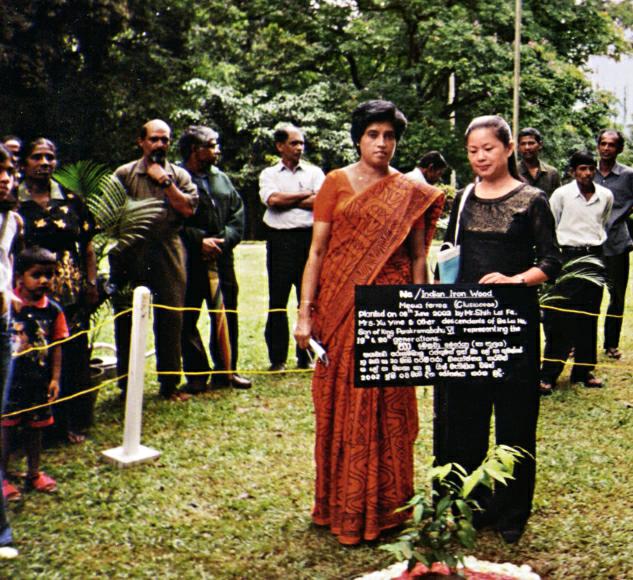Xu-Shi Yin’e:Friendship Envoy of the Maritime Silk Road
2015-08-26
IN the coming years, construction of Chinas“Belt and Road” Initiatives, proposed by Chinese President Xi Jinping during his 2013 tour of Central Asia, will proceed at full throttle. The aim is to revive the historic trade route; but in fact, the bond of the Silk Road was never really broken. Traces left by merchants from past centuries still remain in several places in China to this day. One is in the southeastern Chinese coastal city of Quanzhou. There lives a woman who bears the legacy of the Silk Road and whose fate is closely connected with the historic trade route.
I meet Xu-Shi Yine whilst enjoying a cup of black Ceylon tea at a tea shop on a busy shopping street owned by her friend Huang Yongjiang. At first glance, Xu-Shi Yine appears shy. With her hair neatly pinned up, she wears a flower-patterned summer dress, a fine white cardigan and a pair of snowwhite ballerinas. The 51-year-old looks fragile at first glance, almost reminiscent of a timid schoolgirl. But she became animated and bubbly as she told her story. She has given many interviews over the past few years, but talked only to me about a secret that her family has closely guarded for centuries.
Ancestor Mysteries
During her childhood, Xu-Shi Yine learned from her grandmother that the familys ancestors were not from China but another distant land. Xu-Shi Yine recalls how she tried many times to decipher the cryptic genealogical inscriptions in her family shrine, which were written in a foreign language. At that time, the young girl did not think much about it. She lived in a city where different cultures were constantly coming together and where the multicultural history of the Silk Road was showcased.
Centuries ago, many foreign merchants liked the metropolis – with its mild climate, business opportunities, harmonious society, and multicultural atmosphere – so much that they stayed. Some married locals and settled permanently. Many descendants of these dealers still live in the city. Strong Muslim influences are particularly apparent in Quanzhou today, telling of this glorious past.
But Xu-Shi Yines ancestors were anything but simple merchants. When she was 16 years old, her father revealed to her a secret that the family had concealed for generations. He enjoined her never to reveal it, not even to her husband.
In Xu-Shi Yines veins flows blue blood. She and her family are the descendants of the Sri Lankan royal family. One of her ancestors, the heir to the throne of Ceylon (todays Sri Lanka), came to the imperial Ming Dynasty court (1368-1644) 500 years ago with a delegation headed by the famous Chinese navigator Zheng He as an envoy on the long and arduous sea route to China. While he was in the Chinese empire, his father died unexpectedly in his distant homeland. His return had become unthinkable and so the prince decided to stay in Quanzhou, then the No.1 port of the East. He later fell in love with an Arab female noble and localized his family name to Shi, the first character of the Chinese translation of his name. The Shi line continued for hundreds of years. But the 14th generation of the family produced no male heir, and a local man named Xu married into the family, so the clan ad-opted the compound surname Xu-Shi.endprint
